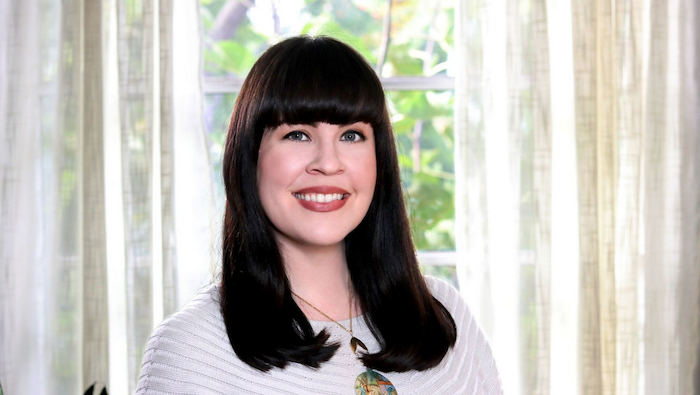Mortician Caitlin Doughty on funeral rituals and why death is often hidden away

Some Native Americans have long believed that death is part of the natural cycle of life and many cultures believe the dead spirit continues to “walk on” implying the continuation of a journey rather than an end point with death. Funeral and burial rituals provide comfort and acceptance; death is embraced and revered instead of feared. What can be learned from these practices and rituals that would help make death more meaningful, and less frightening. Do rituals need to be religious to serve a purpose? KCRW’s Jonathan Bastian talks with Larry Sellers, a traditional practitioner and member of the Osage, Cherokee and Lakota tribes and Caitlin Doughty, a mortician and author of “From Here to Eternity; Traveling the World to Find the Good Death.”
The following interview excerpts have been abbreviated and edited for clarity.
KCRW : We heard from BJ Miller, about how we, as a society, run from death and delay it. What have you experienced?
Caitlin Doughty:What I always find fascinating about the American way of death is how successfully we’ve hidden death. Dead bodies go to funeral homes or industrialized crematories. People who are dying are hidden away in hospitals or nursing homes. Even our animals are removed from view and taken to slaughterhouses, so we don’t even know where our meat comes from anymore. So never in history has there been a society that has so successfully hidden away death, and I think that’s caused innumerable problems.
Larry Sellers: Yes, for the most part, the masses have had this thing about being afraid of death; it’s not a part of their lives, so they hide it and then they make more out of it than what it really is. And in traditional cultures, there isn’t death, there’s only a change of worlds. That you go from this world, because the human spirit never dies and you go to another world. And the dominant culture here is to make everybody afraid of death. Whereas traditional peoples, we look at it as a part of that life cycle. And it’s the transition, the “crossing over,” that’s to be celebrated.
Traditionally many years ago, the way Osage people would bury those who have “crossed” was to put them in a sitting position facing East where the sun rises, so they could greet the morning. Then they would stack stones around them. As a society we believe the community and heritage comes first, so in death, you would be willing to sacrifice yourself, so that the people on Mother Earth can continue to survive.
What about the importance of ritual and ability to navigate this process?
Doughty: What I end up focusing on is the idea that engagement right after death, specifically engagement with the dead body itself is primal, it’s timeless and it can help your grief journey so much to be able to be present with the dead body and care for the dead body because that’s what humans have been doing for tens of thousands of years in all different cultures.
The fact that we pathologize the dead body, we’ve said it’s dangerous, it’s scary, it’s filled with bacteria, it’s probably decomposing, none of which are true. We’ve made the dead body something that can only be handled by professionals for quite a lot of money, as opposed to something that can be done in your community, by the person’s wife or by the person’s child.
In fact, if the family is involved with care for the dead body, it can completely transform how they feel about the death; they can feel empowered, they can feel connected and they can feel like they were there at the very end.
Also it doesn’t have to be religious. If you feel like you’re a modern secular American, without much of a connection to religiosity or that you’ve lost it. Ritual can a-religious, if you still believe in what you’re doing and you’re doing a physical action, you can still be powerful, important, and it can represent a transition.
Sellers:Being with that body and helping that body make that transition is so important. We’ve been affected by the US law from totally practicing our culture because we’re required in large part to encase our family members in a either a metal case or concrete casement rather than a natural burial. Only a few places around the country that allow for natural burials. So if you want a natural burial, you have to go there rather than be with your relatives here. Being around that body helps you process that transition. And it helps to see that person is taken well care of by the family members and the people who were important in that individual’s life.
Complete Article ↪HERE↩!
